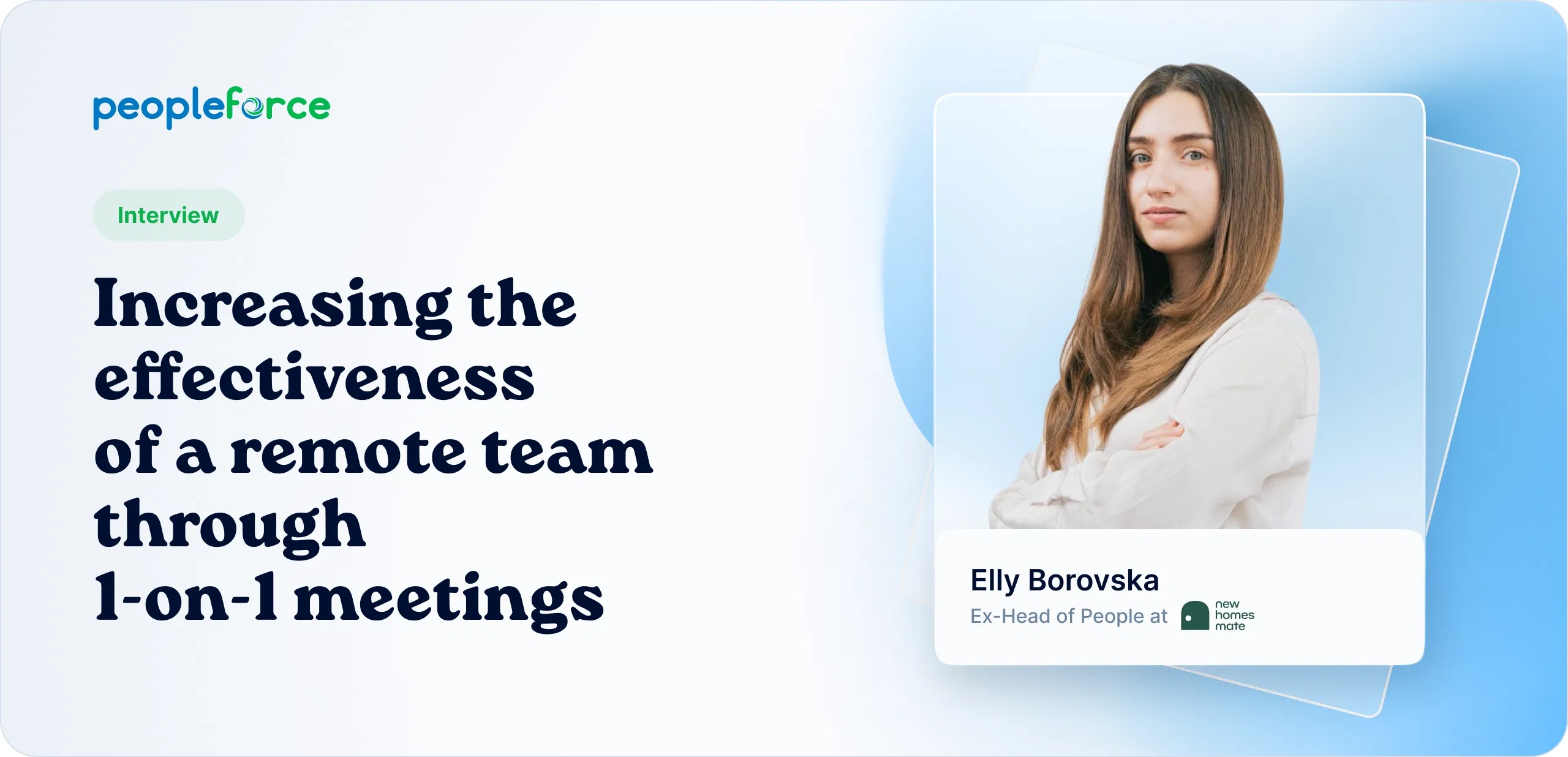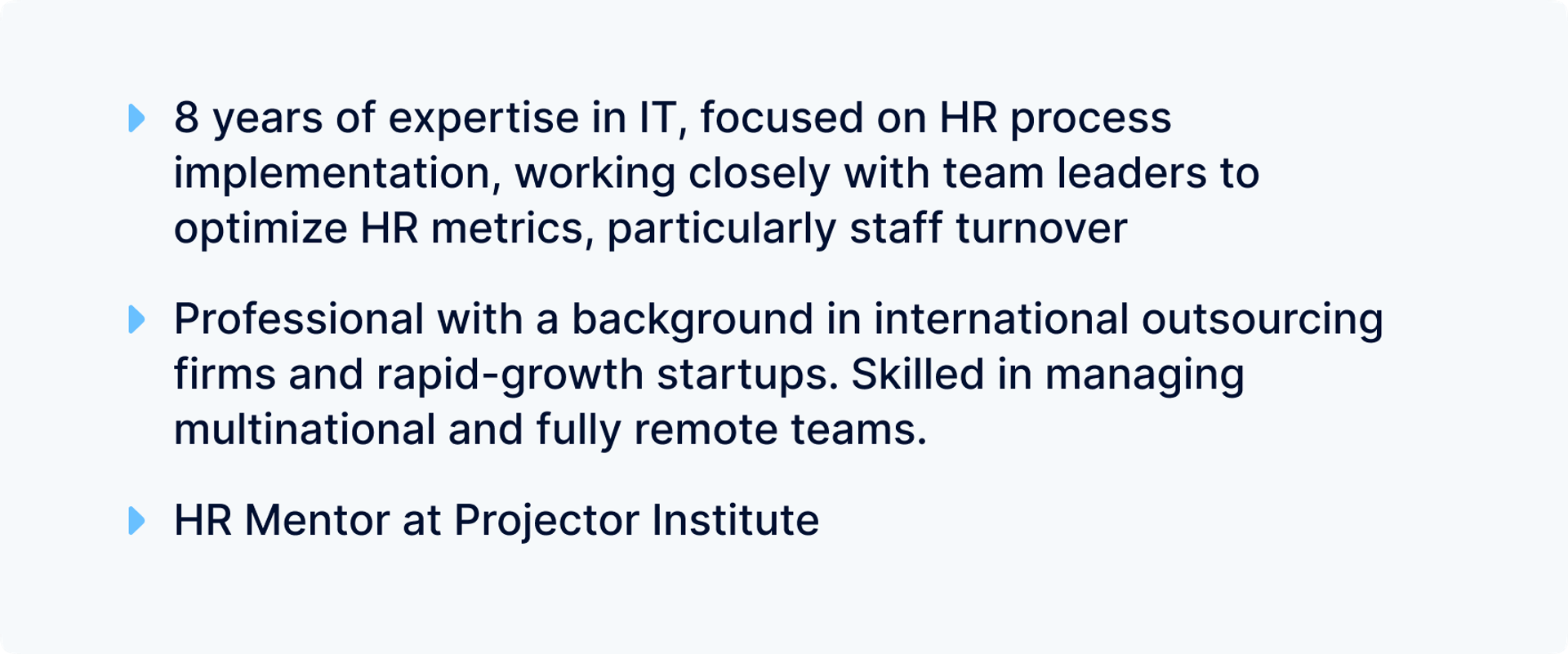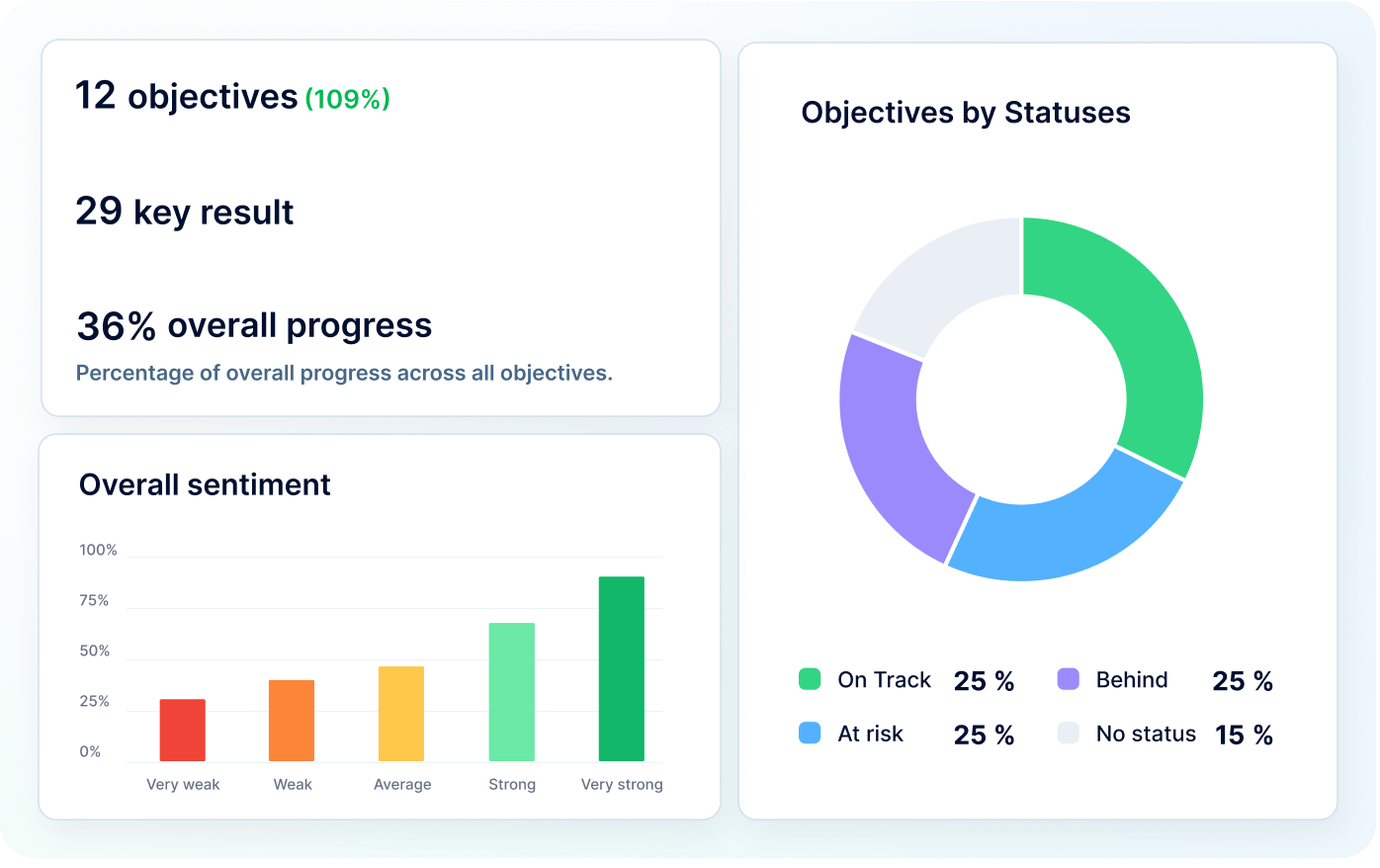
Increasing the effectiveness of a remote team through 1-on-1 meetings
Does the full remote work format as a working model lead to instability in the work process and decreased team effectiveness? Statistics on this matter vary widely: overall, 35% of employees feel much more productive when working remotely, but on the other hand, 53% of workers mention difficulties in communication with their colleagues. Remote work helps restore the balance between personal life and work, but it can impact mental health, satisfaction, the sense of team attachment, and as a result, the timely achievement of goals, progress in personal and career plans, and so on.
Of course, these consequences are valid if the company, in turn, does not work on communication with the employee. One of the most crucial tools in this situation is regular 1-on-1 meetings.
Elly Borovska, an expert in HR strategy development and team process building, as well as the Head of People at NewHomesMate, in this article, helps us understand why 1-on-1 meetings are an effective way to enhance efficiency and build relationships with employees in 2024.

Why are 1-on-1 meetings critical tools for remote teams in 2024?
1-on-1 is an excellent tool for working with people, which has always been critically important. It can be said that in 2024, it will become even more relevant due to the transition of most teams to remote or hybrid modes.
Among the important functions of 1-on-1 are building trust, exchanging feedback, and addressing potential misunderstandings in communication at all levels within the company. If these tasks could be partially addressed through informal personal interactions in the office in the past, this opportunity is absent in a remote setting. This is why 1-on-1 meetings become critically important.
How to change the approach to planning and conducting 1-on-1 meetings for maximum effectiveness?
The most common mistake made during 1-on-1 meetings is the lack of a discussion plan (agenda) and meeting notes. A discussion plan is essential for adequate preparation, while notes and action points serve as a summary of your conversation and a plan for real actions agreed upon during the 1-on-1. At the beginning of each meeting, it is recommended to discuss the progress on previous action points.
This is a case where HRMS (Human Resource Management System) platforms like PeopleForce can be beneficial. Automation helps you track progress in meetings, store notes, and convert action points into goals for execution. It's very convenient when all of this can be done within one system.
Why is it important to conduct regular 1-on-1s to gauge team satisfaction during remote work times?
During 1-on-1s, you can gain additional insights or delve deeper into satisfaction issues compared to conventional surveys. This approach takes more time to gather information, but it yields results in the long term. I recommend discussing employee satisfaction issues in 1-on-1s, but also not dismissing the survey method.
If the team survey was anonymous but revealed a low level of satisfaction, what should we do?
If the survey is anonymous, you should work with generalized feedback. As an option, suggest that individuals who are willing to discuss the feedback they provided in the survey reach out to you. Also, involve team leaders in creating a plan to address negative feedback.
If you've identified critical feedback, and it's unclear who it came from, address this question publicly if possible. If not, consider how to mitigate the risks associated with this feedback. An HR manager can assist you with this. Additionally, if you have specific cases and need help, feel free to contact me for consultation.
What business goals do 1-on-1s help achieve?
The goals that 1-on-1s help achieve will depend on the specific case and the roles of the individuals involved in the meeting. This tool can address various issues, and you can choose its purpose based on your particular situation. For example, you can use 1-on-1s to:
- Identify employee motivation and improve performance.
- Align employees' personal goals with the company's objectives.
- Resolve issues of miscommunication.
- Retain employees and assess team satisfaction.
- Exchange feedback.
- Adjust understanding of the business strategy.
Most importantly, 1-on-1s are valuable for building trust and fostering effective working relationships.

How to properly convey to an employee that 1-on-1s are not a stressful tool but rather a key to achieving both personal and career goals?
If your team has no prior experience with 1-on-1 meetings, it's a good idea to communicate your decision to introduce this initiative, your approach to 1-on-1s, and your expectations from this initiative. This will help people properly perceive the new activity and engage them in cooperation.
Start by choosing a methodology and goals for 1-on-1s. Then, inform the team about your plan for conducting regular 1-on-1s and what you will use them for. This helps the team be prepared for the meetings and makes the sessions more effective. After the first couple of rounds, gather feedback from the team on the quality of 1-on-1s and potential improvements.
If an employee's concerns are based on negative past experiences, it's best to address them individually. Typically, a quality 1-on-1 is often enough to change a person's attitude towards these meetings.
If you are interested in the topic of 1-on-1s, explore the meeting tools in PeopleForce that allow you to keep all discussion information in one platform and conveniently conduct calls with colleagues and subordinates, having an action plan at your fingertips. We are always ready to help and explain how this tool will work for your company. Request a demo presentation from our specialists to see everything with your own eyes.
Get started with PeopleForce today
Automate your HR routine to create a high performance culture in your company. PeopleForce is your best HRM alternative to stay business driven but people focused.

Recent articles
Top 10 ATS systems: The ultimate recruiter's guide
Looking for the best ATS? Compare the top 10 ATS systems by features, pricing, and user reviews to find the perfect hiring solution for your team.
🎉 PeopleForce Wrapped 2025: a year of HR magic
2025 wasn’t just about shipping features — it was about making HR work better at scale. Let’s unwrap everything we built together.
Get Ready for the EU Pay Transparency Directive with PeopleForce
Discover the key obligations of the Pay Transparency Directive and see how PeopleForce helps organisations prepare the structures, processes, and data needed to comply with the new requirements.

